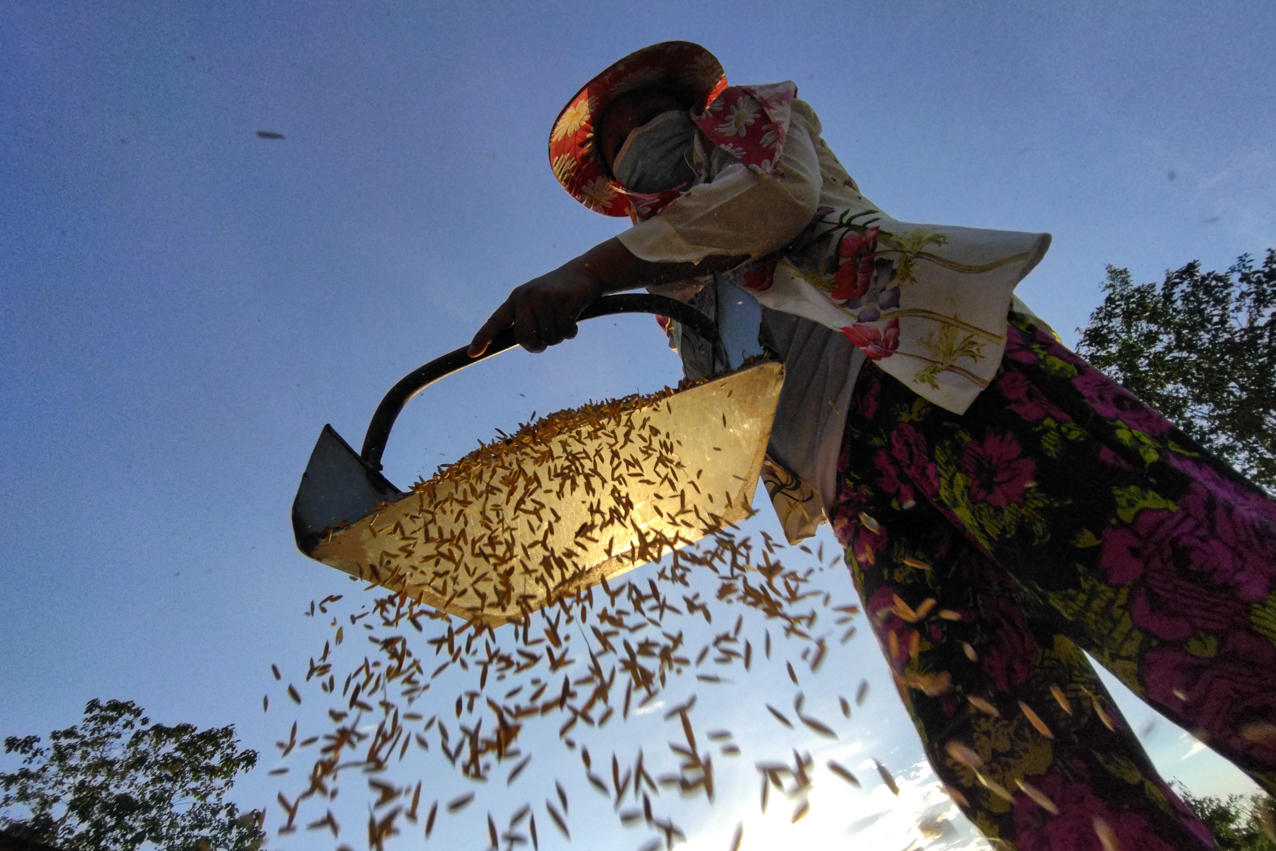BSP: Agri in north Luzon key to pandemic recovery

PRECIOUS GRAINS Farmer Irene Soriben uses a “saki” (rice shovel) to collect sundried palay (unhusked rice) at a rice drying facility in the village of Kita-Kita in Balungao, Pangasinan. The government
says food producers, like rice and vegetable farmers, and workers in the agriculture industry, will be key in the country’s economic recovery after the pandemic. —RICHARD BALONGLONG
BAGUIO CITY — The Bangko Sentral ng Pilipinas (BSP) has acknowledged that agriculture and other food-producing sectors in northern Luzon are key drivers in rebuilding the economy disrupted by the COVID-19 pandemic for almost two years.
The BSP has issued policies that would provide the food growing sector more access to funds, said Zeno Ronald Abenoja, managing director of the BSP’s department of economic research, during an online forum on Thursday.
But instead of targeting individual farmers, the BSP’s measures open credit for the whole value chain, he said.
Northern Luzon absorbed a growth contraction of 8.9 percent in 2020 because last year’s Luzon lockdown and the subsequent quarantine restrictions forced core industries to shut down, Abenoja said.
Economists measured a negative growth of 9.9 percent in the Cordillera.
Article continues after this advertisementDisruption in food distribution and fluctuation in prices contributed to heightened inflation during the lockdowns.
Article continues after this advertisement“Agriculture played a big role [in the course of the] pandemic and has a rich potential as an engine of recovery and growth not only for Luzon but for the rest of the country,” Abenoja said.
Credit program
He said BSP policies encouraged banks to also lend to food processors, vegetable traders and truckers, and other sectors of the value and supply chain.
These policies allow banks to ease regulations for food production and address “associated credit risks” with the farm and fisheries sector.
Abenoja said the BSP put up a credit surety fund program to serve as security for loans taken out by micro, small and medium enterprises, which include small farmers and fishermen, “in lieu of acceptable collaterals.”
Access to credit is an “important component” in accelerating farm production, he said.
But given the nature of agriculture and its vulnerabilities to factors like bad weather, Abenoja said credit and financing to food growers and fishermen must lead to the application of new technology to make the supply chain more efficient.
“We think innovative ways of delivering credit allow farmers to leverage more effective methods [at generating and distributing food],” he said.
This is essential because “the momentum of economic recovery remains tentative due to the threat of new virus strains,” Abenoja said.
But refinements in the government’s lockdown protocols and faster vaccination of the population should help revive many industries, Abenoja said.
Demand
Local economists noted that the demand for food during community quarantines increased exponentially, even in the Cordillera region where agriculture had consistently been a poor economic performer, except for 2017 when its farm economy rose to 5.2 percent from a negative 4.8 percent growth in 2016.
Benguet province grows 80 percent of salad vegetables sold in Metro Manila and other Luzon provinces.
But the region’s producers complained in August and September about smuggled vegetables that competed with local produce. —VINCENT CABREZA